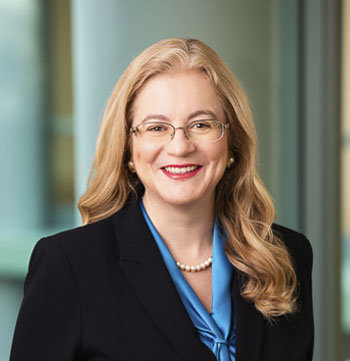https://arab.news/bnrjh
- Kingdom’s new fintech strategy expected to diversify financial sector, providing more opportunities for investors while attracting new funds to the sector
RIYADH: The International Finance Corp., a member of the World Bank Group, is open to investing and supporting the fintech sector in Saudi Arabia, as it eyes to expand its existing portfolio worth $8 billion invested in the Kingdom, said a top official.
In an exclusive interview with Arab News, Hela Cheikhrouhou, IFC’s regional vice president for the Middle East, Central Asia, Turkey, Afghanistan, and Pakistan revealed that IFC is looking to further work with Saudi Arabia as the Kingdom is steadily advancing on the path of an economic transition.

Hela Cheikhrouhou
We are keen to support in the future, where we can bring value to enable this significant transition
IFC's VP Hela Cheikhrouhou
The comments from Cheikhrouhou came at a time when the Saudi Cabinet has approved the financial technology strategy in the Kingdom. The new fintech strategy is expected to diversify the financial sector, thus providing more opportunities for existing investors, and will also attract new funds to the sector.
“IFC has been supporting fintech for more than a decade all over the world. So we have that core of expertise, both centrally and distributed through experts in our different hubs. And definitely, we see a lot of promise here,” Cheikhrouhou told Arab News.
Read more: Fintech gains importance in Saudi Arabia as Cabinet approves sector's strategy
Looking beyond fintech
Talking about the association with Saudi Arabia, Cheikhrouhou revealed that IFC has partnered with companies in the Kingdom whenever there was a market opportunity to grow. She also added that IFC has been providing all the help to Saudi private sector companies that aim to diversify their businesses.
“We have been, over the last 15 years, a good partner for Saudi private sector companies looking to diversify and grow their activity through investing across the emerging world. We have been supporting them with co-investment with our knowledge of the various emerging markets,” said Cheikhrouhou.
She added: “We are keen to support in the future, where we can bring value to enable this significant transition.”
She also noted that IFC had enabled more than $8 billion of investments by Saudi Arabian companies in 46 different projects over the last 15 years and partnered whenever there was a market opportunity to grow.
The financial institution has collaborated with Saudi Home Loans, ACWA Power and Almarai for several years.
“We act wherever there is an identified market need for growth. IFC was one of the first partners to introduce mortgage finance through Saudi home loans,” she said.
In fact, IFC has collaborated with ACWA Power for over 17 years and continues to be a partner in its growth story.
Opinion
This section contains relevant reference points, placed in (Opinion field)
Speaking about IFC’s interest in Saudi Arabia’s energy industry, especially in developing hydrogen-based energy, she said the institution can intervene in three ways.
First, it can provide transaction advisory by bringing its technical expertise to advise and mobilize private investors to fund innovations or growth in new areas. Second, it could make demonstration investments. And finally, it could partner with Saudi investors in rolling out the energy opportunity in other developing countries.
She also revealed that IFC is currently revisiting its strategy for the Gulf Cooperation Council and plans to focus on growing the underdeveloped segments.
“We are right now updating our GCC strategy. Historically, we have been working with higher middle-income countries like Saudi, particularly in underserved segments of the economy. If there is a particular gap or market failure, we can come in and do a demonstration project or investment,” she added.

